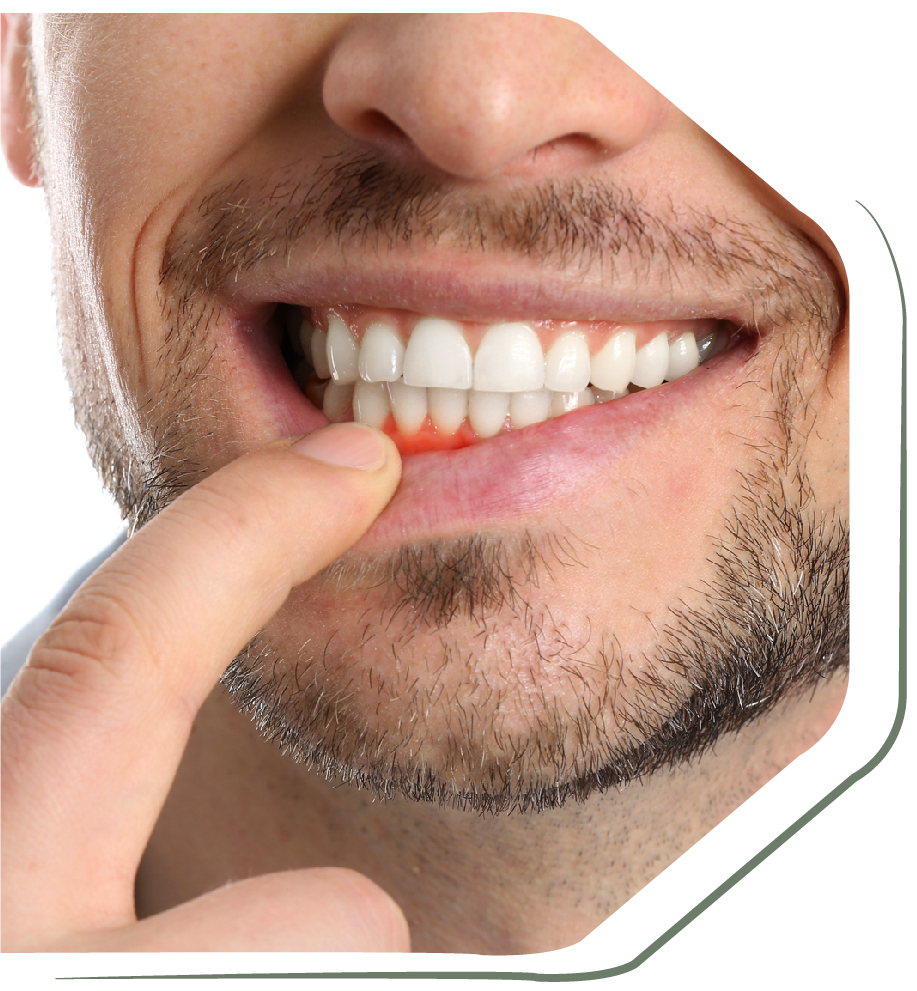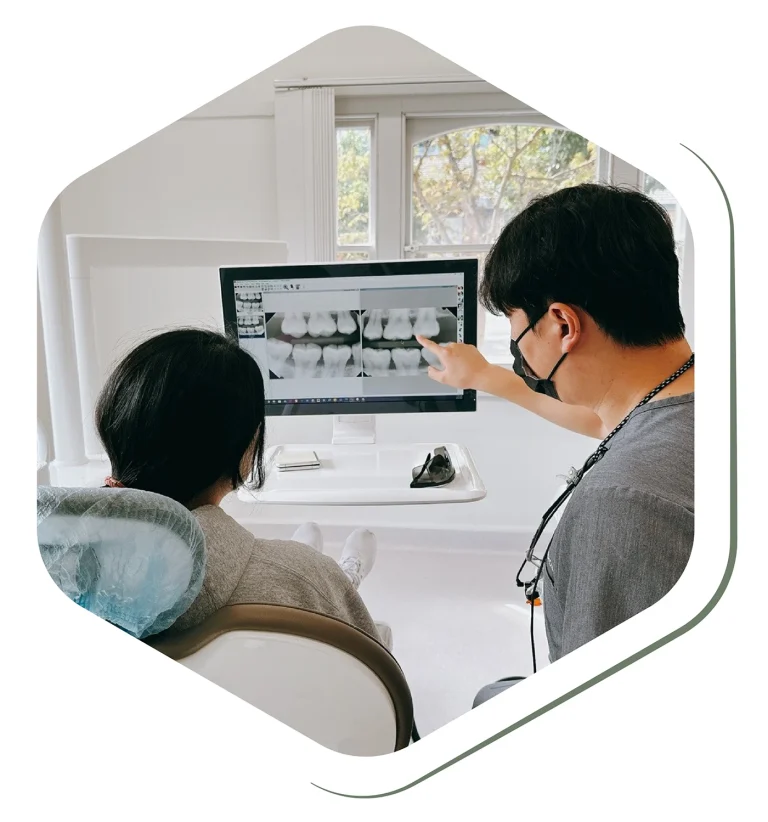Contents
- 1 Root Canal Treatment in Hawthorn
- 1.1 Table of Contents
- 1.2 What Is Root Canal Treatment?
- 1.3 What Causes An Infected Tooth?
- 1.4 Signs You May Need a Root Canal Treatment
- 1.5 Root Canal Treatment Process
- 1.6 What are the Benefits of Root Canal Treatment?
- 1.7 Why is preservation of your natural teeth so important?
- 1.8 COST OF ROOT CANAL TREATMENT
- 1.9 WITH U DENTAL: TRUSTED ROOT CANAL TREATMENT IN HAWTHORN
Root Canal Treatment in Hawthorn
Are you experiencing persistent tooth pain or sensitivity that just won’t go away? Or perhaps you’ve noticed some swelling of the gum around the tooth. If so, you might have an infected or damaged tooth and may need a root canal treatment to alleviate the discomfort it causes.
You should not turn a blind eye to these signs because an untreated infection can spread to your gums and jawbone. If left to worsen, you may lose your tooth or part of your jaw. Abscesses (pockets of pus) may form in the root of your tooth, and you may end up needing emergency treatment to avoid life-threatening complications.
Not to mention, by the time you reach this stage, you will be in extreme pain! With our root canal treatment at With U Dental, you can eliminate the risk of all these problems, save your natural teeth and restore your beautiful smile.
What Is Root Canal Treatment?
If you have a severely damaged or infected tooth, extraction may not be the only solution available to you. Root canal treatment, or endodontic treatment, is a procedure that will help save severely damaged or infected teeth without removing them.
A root canal treatment involves cleaning out your tooth’s damaged or infected dental pulp. The dental pulp is a soft tissue at the core of your tooth, directly beneath the dentin layer. This dental pulp also holds sensitive nerves and blood vessels and provides oxygen, nutrients and feeling to your tooth. This is why a severe infection that has reached the dental pulp is often quite painful.
A root canal treatment is a highly effective way to alleviate this pain and save a severely damaged or decayed tooth. Once treatment is completed, you’ll be able to enjoy a functional and long-lasting tooth, given that you maintain good oral health.

What Causes An Infected Tooth?
An infected tooth and damage to the dental pulp can occur as a result of several factors. These include:
- Untreated or severe tooth decay
- Neglected gum disease
- Trauma or injury to the tooth
- A crack in the tooth that extends into the dental pulp
Signs You May Need a Root Canal Treatment
We strive to save your natural tooth as much as possible to maintain your smile’s functionality. That’s why it’s important to be aware of the possible signs and symptoms that may arise from a damaged or infected pulp. Some of the common symptoms include:
- Toothache when biting and chewing
- Sensitivity to hot or cold foods and drinks
- Swollen or tender gums
- Pus surrounding the infected tooth
- A loose tooth
- Swelling of the face or neck
- Foul odours
- Tooth discolouration
You may not always notice or feel the signs of a tooth infection. That’s why it’s important to get regular dental checkups. During these checkups, your dentist can detect and treat tooth infections early to save your tooth and prevent further problems.
Root Canal Treatment Process
Depending on the severity of your case, you may need to visit the dentist more than once for a root canal treatment. Here’s what you can typically expect:
Using diagnostic tools, our skilled dentists will assess for signs of infection.


Our dentists will administer local anaesthesia to numb the area around the tooth, ensuring pain-free treatment and comfort to the patient.
A sheet of rubber, also called a rubber dam, will be placed over the infected tooth as a preventive barrier to prevent further contamination.


With utmost precision, the dentist will make a small opening on your tooth’s surface to remove infected or dead pulp tissue. The canals in your tooth will then be cleaned and disinfected. This process may require more time for the desired effect.
Once the root canal is thoroughly cleaned, it will be filled with a material called gutta-percha. A long-lasting barrier material will then be used to seal the tooth and keep bacteria at bay.


The final touch is placing a well–sealed dental restoration or crown over your natural tooth to provide an extra layer of protection.
The entire process aims to thoroughly remove infection, alleviate pain, and save your natural tooth.
What are the Benefits of Root Canal Treatment?
By opting for root canal treatment, you can enjoy a range of benefits, including:
- Preservation of your natural teeth
- Improved oral health and the appearance of teeth
- Reduce and eliminate dental pain
- Restore functionality, making chewing and biting easier
- Prevent jawbone deterioration
- More cost-effective than tooth replacement
- Prevents the spread of infection
- Relatively comfortable and minimally invasive thanks to our advanced techniques
- Minimal recovery time
With a friendly, caring and gentle approach to dentistry, our experienced dentist will ensure that your root canal treatment goes smoothly so you can have a pain-free, beautiful smile once again!
Why is preservation of your natural teeth so important?
At With U Dental, we believe that nothing functions better than a natural tooth. They are strong, durable, and look and feel great. That’s why we always strive to save your natural teeth wherever possible, even if they are damaged or infected. Root canal treatment is a safe and effective way to save your tooth that would otherwise need extraction. This allows us to keep your tooth and restore it to full function.
COST OF ROOT CANAL TREATMENT
The cost of root canal treatment depends on factors such as the number of infected canals to be filled and if a crown is needed. When you visit our dental clinic for a consultation, we will assess your mouth for signs of infection and provide an accurate cost estimate.
We also provide dental payment plans to make quality dental care accessible for all. Our friendly team will check your eligibility and guide you through any financing paperwork, ensuring a smooth process.
WITH U DENTAL: TRUSTED ROOT CANAL TREATMENT IN HAWTHORN
At With U Dental, we believe everyone deserves a healthy and confident smile. That is why we offer straightforward root canal treatment that relieves you of your discomfort and leads the way towards optimal oral health. With professional and compassionate dentists, revolutionary dental technology, sleep dentistry techniques and a welcoming environment, your treatments with us will be comfortable, painless and stress-free.
We offer a wide range of comprehensive dental services, from general dentistry, cosmetic dentistry, orthodontics, emergency dentistry, family dentistry and holistic dentistry, to cater to all your dental needs.
We strive to make dental care an accessible service to all and accept a range of payment methods to help you cover your treatment when you need it most. Conveniently located in Hawthorn, we will bring you one step closer to your dream smile while allowing you to enjoy optimal oral health.




